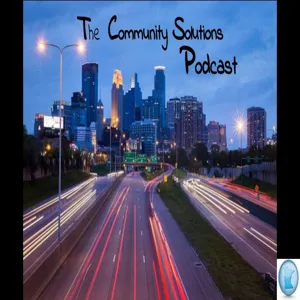Podcast Summary
Debating the Effectiveness of Government Subsidies for Industries: Government subsidies for industries can promote innovation, create jobs, and increase competitiveness, potentially making a country wealthier, but their effectiveness is a subject of ongoing debate
Key takeaway from this discussion on NPR's The Education From Planet Money is that there is ongoing debate about the effectiveness of government subsidies for industries in making a country wealthier. This industrial policy involves using taxpayer money to fund various projects, such as semiconductor chip fabrication, green hydrogen plants, and solar panel factories. The motivations behind this include defense and security, climate change, and economic growth. Rekha Juhas, an economist at the University of British Columbia who studies industrial policy, argues that such subsidies can indeed make a country richer by promoting innovation, creating jobs, and increasing competitiveness. However, this perspective is contested, and it remains to be seen whether government support for industries will consistently lead to thriving economies.
Addressing Market Failures with Government Intervention: Government intervention can help address market failures, such as underinvestment in green energy or risky innovations, and shape the economy for the better. Examples include subsidizing green energy and supporting vaccine development.
Market failures exist and the government can play a crucial role in addressing them to shape the economy for the better. Rekha's argument highlighted the climate crisis as an example, where the private sector would underinvest in green energy transition, leading to long-term consequences. However, the government can step in to subsidize risky ideas and make markets work better, as seen in the case of Moderna's vaccine development during the pandemic and the semiconductor industry's commercialization. While not a panacea, embracing the role of the government as a partner to the market is essential for addressing market failures and ensuring societal progress. Adam Posen agreed with this perspective and acknowledged the importance of government intervention in addressing market failures.
Subsidies can have negative consequences: Subsidies can lead to corporate power concentration, hinder green tech spread, and create wasteful international arms race, instead focus on market failures and competition.
Subsidizing individual companies and industries through the government can have negative consequences. According to the discussion, this approach can lead to the concentration of corporate power, an international arms race, and hinder the spread of green technology, particularly in developing countries. The concern is that these entrenched companies may exploit the system, create barriers to competition, and act against the public interest. Furthermore, subsidies can result in a wasteful international race to spend large sums of money, ultimately benefiting no one. Instead, it is suggested that addressing market failures and promoting competition could lead to more societally beneficial outcomes.
Industrial policy: A double-edged sword: Effective industrial policy can create new markets and technologies, but it's crucial to focus on goals and specific tools, rather than just subsidies to specific companies, especially in the context of green energy transition where public investment and technology transfers are necessary for a more equitable and sustainable future.
Industrial policy can be a double-edged sword, with potential risks of entrenching incumbents and creating zero-sum games. However, if implemented effectively, it can also lead to the creation of new markets and technologies, making the entire economic pie bigger for all. The key is to focus on the goals and the specific tools used, such as regulations, tax incentives, and international cooperation, rather than just subsidies to specific companies. In the context of the green energy transition, significant public investment and technology transfers from rich to poor countries are necessary to avoid repeating past mistakes of vaccine distribution and ensure a more equitable and sustainable future for all.
The Pros and Cons of Industrial Policy: A Debate: Rekha Menon argued for the benefits of subsidies and government intervention in industries, while Adam Sorkin warned of potential market distortions. The debate emphasized the need for careful consideration and transparency in industrial policy implementation.
There is ongoing debate about the effectiveness and ethics of industrial policy, with compelling arguments on both sides. Rekha Menon and Adam Sorkin discussed the pros and cons of subsidies and government intervention in industries. While Rekha argued that subsidies can be a useful tool for industrial policy, Adam believed that they can distort markets and lead to inefficiencies. Ultimately, the debate highlighted the importance of careful consideration and transparency in implementing industrial policy. NPR will continue the discussion by examining a specific case of industrial policy: carbon capture. This episode was produced by Britney Cronin, engineered by Neil Rauch, fact checked by Juliet Ritchie, and edited by Kate Concannon. Listeners are encouraged to share their thoughts on the debate by sending an email to indicator@npr.org. Additionally, NPR sponsors Mint Mobile and Capital One were featured in the episode. Mint Mobile offers unlimited wireless plans for $15 a month, while Capital One provides customized financial solutions for businesses. If you're interested in the topic of industrial policy and want to learn more, tune in tomorrow for a deeper dive into carbon capture. And remember, your feedback is always welcome!






